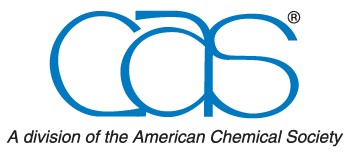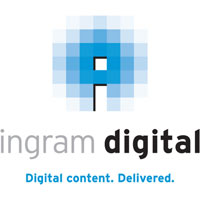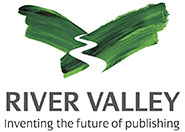STM Innovations Seminar 2011
Enriching Content: deeper, smarter, better.
Some comments from the 2010 Innovations Seminar
"Invaluable insight into latest and most interesting current developments. Especially good for a small publisher to see what is on the horizon. Extremely appreciative of Future Lab sessions - very good to even get a glimpse of many new developments."
"Really, really, really, really good"
"Great insights into innovations from a range of sources"
|
8:30 – 9:30 |
Registration & Coffee |
|
9:30 – 10:30 |
Opening Keynote, moderator: Terry Hulbert, AIP, Director of Business Development Richard Padley, Managing Director, Semantico Since 1999 the W3C have put forward their vision for a parallel web of data which could enable machines to understand the semantics of the information underlying much of the human readable web. In contrast to the explosive growth of the HTML web, where standards lagged far behind actual practice, the semantic web has been characterised by slow development and complex standards, with little to show in terms of uptake and adoption.
During this time we’ve seen a massive explosion in both the document oriented web and the social web. Whilst the family of semantic standards and technologies address both of these areas to some degree, these standards have not been widely adopted. In particular, other technologies with similar goals have seen much larger uptake and growth in practical use. The clearest example to date has been the launch of schema.org by Google,Yahoo and Microsoft. This important coordinated action by all of the major search engines has entirely avoided using any semantic web technologies.
Publishers too have been experimenting with these semantic technologies - scientific publishing in particular has long had a fascination for the promise outlined in the semantic vision. Is this justified? In this talk I will examine at two main areas: (1) Are there business or strategic reasons to use these technologies? (2) Are there technological benefits from using these technologies?
On the technology side there are some parts of the semantic technology stack which are useful to publishers, but also there are large areas which do not deliver. On the business and strategy side, there do remain some specialised areas where the threats and opportunities are interesting and worth pursuing further.
|
|
10:30 – 11:00 |
Coffee & Tea Break |
|
11:00 – 12:20 |
Richer Content, moderator: David Martinsen, Senior Scientist at American Chemical Society
Time Travel for the Scholarly Web Herbert van de Sompel, staff scientist at the Research Library of the Los Alamos National Laboratory. The scholarly communication system is still transitioning from its paper-based origins to a successor incarnation that is truly grounded in the Web. While the Web offers enormous opportunities, devising Web-based approaches to achieve functionalities that were commonplace in the paper-based system can be problematic. This presentation explores some challenges involved in achieving a Web-based scholarly communication record that preserves temporal context. It will discuss how the Memento "Time Travel for the Web" framework can be leveraged with this regard.
How to Execute the Research Paper: From Data Journals to Virtual Machines Anita de Waard, Elsevier Labs, Researcher Disruptive Technologies After almost two decades of innovation, but no real change, on the format of the scholarly publication, it seems we are now near a tipping point where true changes are about to take place in the way that science and the humanities are described, transmitted, used and aggregated. In my talk, I offer a brief overview of a number of recent projects that aim to accelerate this revolution, and better graft scholarly communication on the distributed, immediate, multi-modal information galaxy we inhabit today. First, I’ll discuss some work to redefine scholarly publications as ‘stories, that persuade with data.' Next, I will describe ongoing work on improving the relationship between publications and research data, through online workflow systems and the creation of ‘executable’ journals. Lastly, I’ll mention a current effort to connect scholars, publishers, librarians, programmers and funding agencies entitled Force11, (Future of Research Communications and eScience, 2011).
Computation meets Knowledge Conrad Wolfram, Strategic Director and European co-founder, Wolfram Research The value-chain of knowledge is being rapidly redefined. Rather than static information in dead documents, readers increasingly expect active content they can drive, interact with, and automatically recompute from. They correctly perceive that these changes can dramatically step-up the bandwidth of communicating technical ideas and increase the value of the content. Yet up to now few such active journals or scientific books have existed because their cost of production is too high with professional programmers rather than the authors themselves typically needed to build the content. Conrad Wolfram will discuss what's needed to change this, including demonstrating the new Computable Document Format (CDF) live, and explaining how we'll soon be entering a new era of citizen interactive document authoring. |
|
12:20 – 12:50 |
5 Future Flash sessions, moderator: Jonathan Clark, independent Advisor Daniel Pollock, NPG: Mobile or Desktop? Kindle or iPad? HTML5 or ePub? Why we should wait and see Michael Forster, Wiley: iMolecules Kent Anderson, JBJS: Portfolio Expansion IJsbrand Jan Aalbersberg, Elsevier: Connecting to external data sets through SciVerse Applications |
|
12:50 – 14:00 |
Lunch |
|
14:00 – 15:00
|
Keynote: IEEE lecture on Innovative Libraries, moderator: Gerry Grenier, Director of Publishing Technologies, IEEE Digital Dementia: Lost in knowledge or a New Scholarly Landscape? Our vast embrace of the Internet and World Wide Web, the increasingly easy access to high-end computing, large-scale inexpensive digital storage, and the nearly limitless array of new electronic tools for research analysis and collaboration has dramatically re-shaped our information landscape. While this wealth of easily accessible information certainly has opened up almost limitless possibilities, the research, IT, and publishing communities struggle to figure out how to take full advantage of all of these constantly emerging technologies, and whether we should invest dwindling resources in fleeting fashion-of-year technologies.
As scholars struggle to keep pace with the richness of opportunities available, there is an opportunity for information professionals and the scholarly publishing community to add real value to the creation of knowledge in all its forms.
Can publishers and information professionals work together to be key nodes on this new evolving information network? The answer to this question can be yes — but only if there are radical changes in the way we conceptualize the roles of information professionals and business models for scholarly communication. |
|
15:00 – 15:20 |
Coffee & Tea Break |
|
15:20 – 16:30 |
Smarter Analyses, Better Discovery, moderator: Eefke Smit, STM Director, Standards and Technology
Text Mining and Semantic Publishing Sophia Ananiadou, Director of the National Centre for Text Mining (NaCTeM), Professor, Text Mining, School of Computer Science, University of Manchester Advances in text mining contribute increasingly to semantic publishing. Text mining derived semantic metadata from techniques such as concept extraction, relation and event extraction, and discourse analysis capturing authors' intentions add several layers of semantic annotation that enrich content. All these techniques can revolutionise the way we interact with content and provide new models of semantic publishing. In my talk, I will focus on recent developments of advanced text mining at the National Centre for Text Mining to enrich content and support new models of publishing.
Journal Article Mining and Scholarly Publishers Maurits van der Graaf, Pleiade Management Consultancy and Management BV The essence of text mining and data mining is that a machine and software is used for content analysis of large digital corpora. The Publishing Research Consortium commissioned a study on content mining of scholarly journal articles with 29 expert interviews and an international survey among publishers. The results with regard to the present policies and activities of publishers will be presented. As content mining of journal articles will spread and intensify, cross-publisher solutions can help facilitate content mining better. Various options for such cross publisher solutions will be discussed.
Text Mining meets Crowd Sourcing: author disambiguation in High-Energy Physics Salvatore Mele, Head of Open Access, CERN Author disambiguation is a systemic issue in scholarly publishing, and
A hybrid experiment in author disambiguation in the field, combining |
|
16:30 |
6 Future Flash sessions: moderator Jonathan Clark, Consultant Toby Green OECD: Better-Life Index Prakash Bellur, Next Generation IEEE Research Article Dave Martinsen, ACS: Much Ado About Data Richard Kidd, RSC: Open PHACTS Thijs Willems, Springer: The Book Will Never Die Daniel Mayer, Temis, VP, Corporate Marketing
|
|
17:00 |
Close |
|
|
|
|
|
Registrants, if you haven't reviewed the seminar, please download the evaluation form send to dinnage@stm-assoc.org before 30 December 2011. |
|
|
|
|
|
|

Events Terms and Conditions
Cancellation
Where an event has registration fees, cancellations made in writing up to 30 days before an event are eligible for a 50% refund. No refunds can be made for cancellations received on or after 30 days prior to the event date, however, substitutions may be made free of charge at any time.
Insurance
Registration fees do not include insurance. Participants are advised to take out adequate personal insurance to cover travel, accommodation, cancellation and personal effects.
Privacy
For more information about the personal data processed by STM Services, please refer to our Privacy statement.






